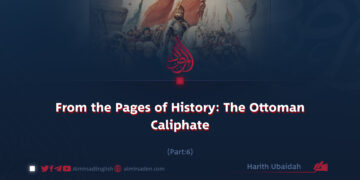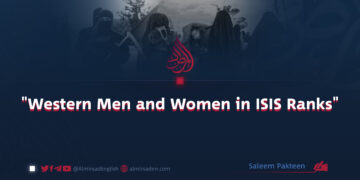By Rashid Shafiq
Throughout the history of Islamic civilization, Muslims have never stood idle in the face of oppression, occupation, or tyranny. Islam is not a faith of mere sentiment or hollow expression; it is a religion that calls its followers to act, to defend justice, and to resist wrongdoing in tangible ways. A true believer is commanded to uphold the truth and confront falsehood through decisive, meaningful action.
In the Holy Qur’an, Allah the Almighty declares: “And prepare against them whatever you are able of power.” This verse makes it clear that Islam is not confined to words or emotions. It is a religion of preparation, discipline, and resolve. It emphasizes readiness and responsibility rather than passive reaction.
In another verse, Allah says: “So do not weaken and call for peace while you are superior; and Allah is with you and will never deprive you of [the reward of] your deeds.” (Surah Muhammad, 35) Here, the believers are taught steadfastness and dignity even in moments of hardship. The message is one of courage and endurance, not weakness or surrender.
The Prophet Muhammad (PBUH) embodied this principle throughout his blessed life. His struggles were not limited to words of disapproval; they were acts of conviction and leadership. The battles of Badr, Uhud, and Khandaq were not fought merely for defense, but to establish justice and suppress falsehood. Even the Treaty of al-Hudaybiya, often misunderstood by outsiders, was a masterful act of strategic wisdom, a demonstration of strength through restraint, not a sign of capitulation.
Across the centuries, the mujahideen, reformers, and scholars of Islam have upheld this legacy through sacrifice and perseverance. They preserved their faith, honor, and lands not with rhetoric, but through action, migration, and struggle in the path of Allah. Qutayba ibn Muslim, Salah ad-Din Ayyubi, and Imam Ahmad ibn Hanbal each stand as timeless symbols of this living tradition of courage and commitment.
In the modern era, the Afghan Muslim nation has remained among the clearest examples of this spirit. Through every wave of invasion and occupation, from the brutal campaigns of Genghis Khan and his heirs to the sectarian zealotry of the Safavids, the colonial ambitions of the British, the occupation of the Soviets, and finally the aggression of the Americans, the Afghans have never laid down their arms in despair nor abandoned their dignity. They have always answered transgression with resolve and faith.
Most recently, the firm and decisive defense by the mujahideen of the Islamic Emirate of Afghanistan (IEA) against Pakistan’s failed incursion once again demonstrated the steadfast character of this nation. Their response was not an act of reactionary violence, but a declaration of sovereignty, an affirmation of loyalty to their people, and a continuation of the same proud legacy that has defined Muslim resistance throughout history.
Just as the heroes of earlier generations stood firm against every aggressor, the current Islamic system remains determined that no violation of its land or dignity will go unanswered. The mujahideen of the IEA today are a living reflection of the Qur’anic command to strength and steadfastness. Their stance against occupation and aggression is marked not by recklessness, but by faith, honor, and composure.
This latest response of the IEA carries a message far beyond the battlefield. It reinforces internal unity and conveys to the world that Afghan soil is neither unguarded nor without ownership. It belongs to a proud, faithful nation that will meet any act of aggression with fortitude, dignity, and unyielding resolve.



















































